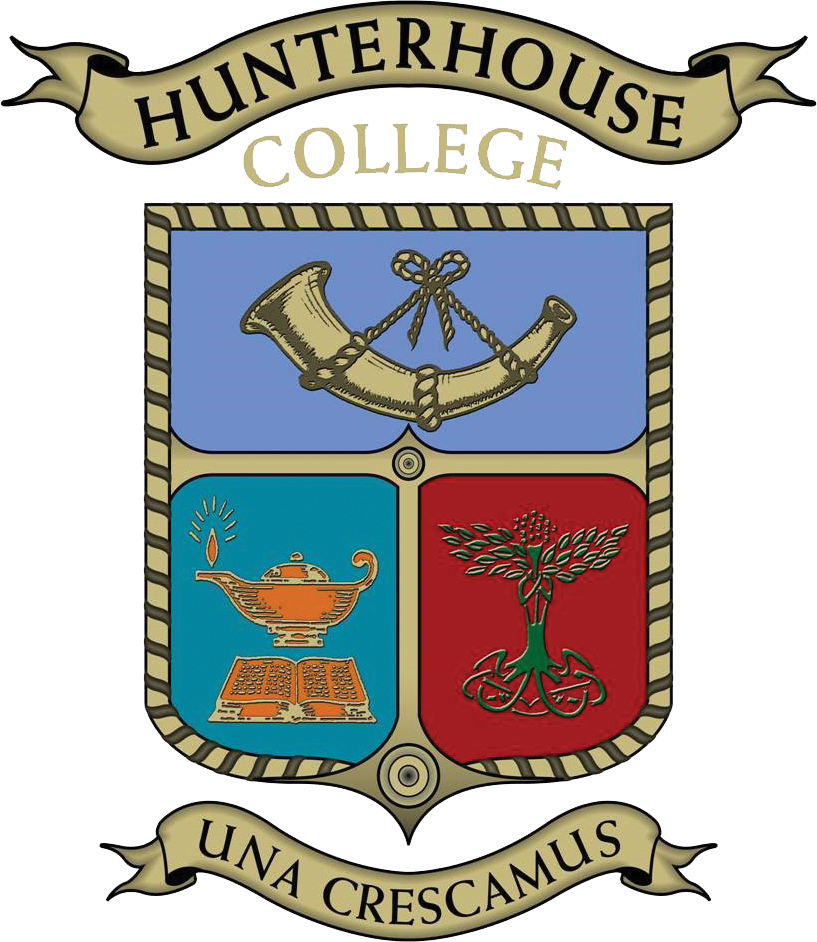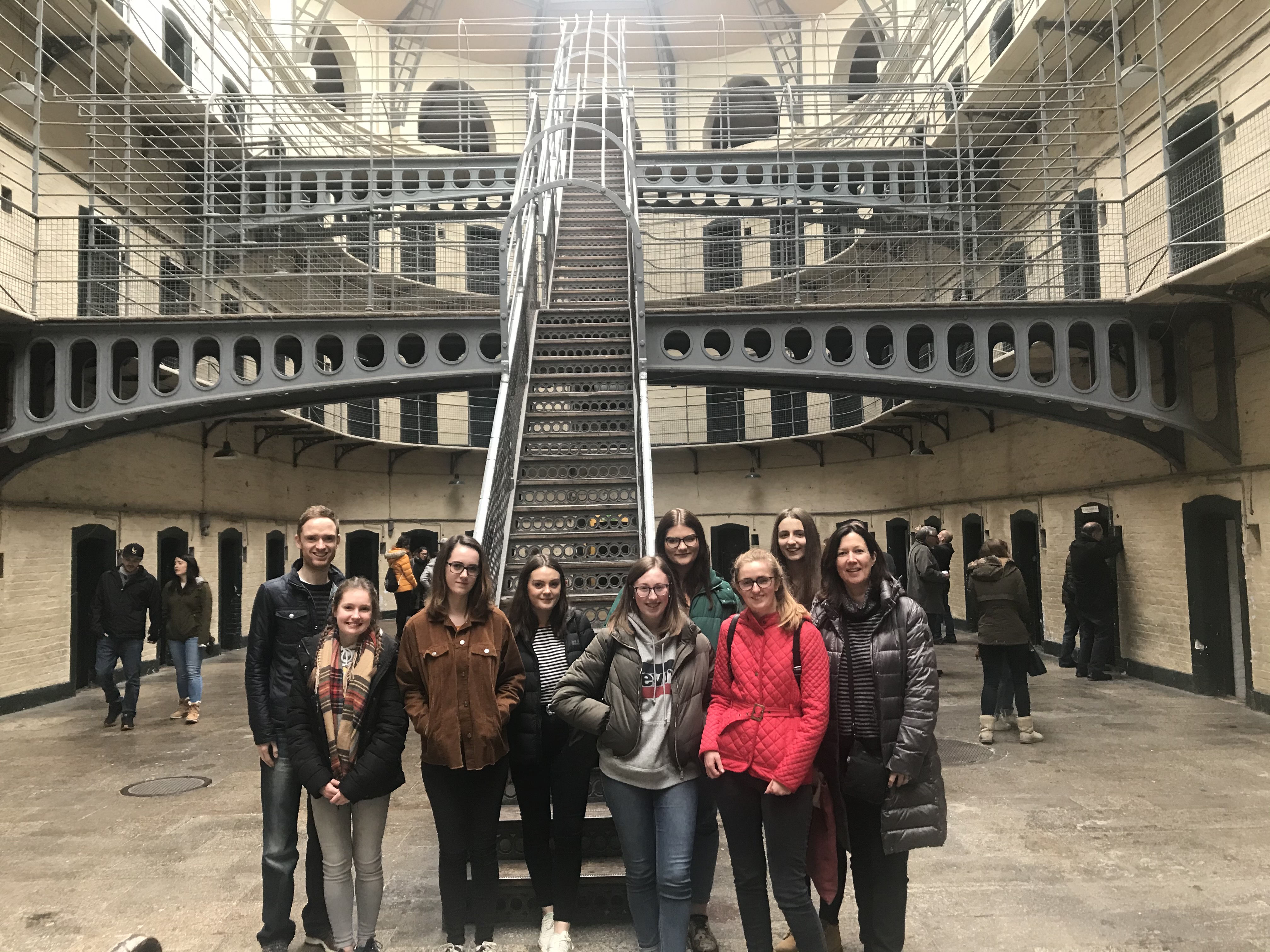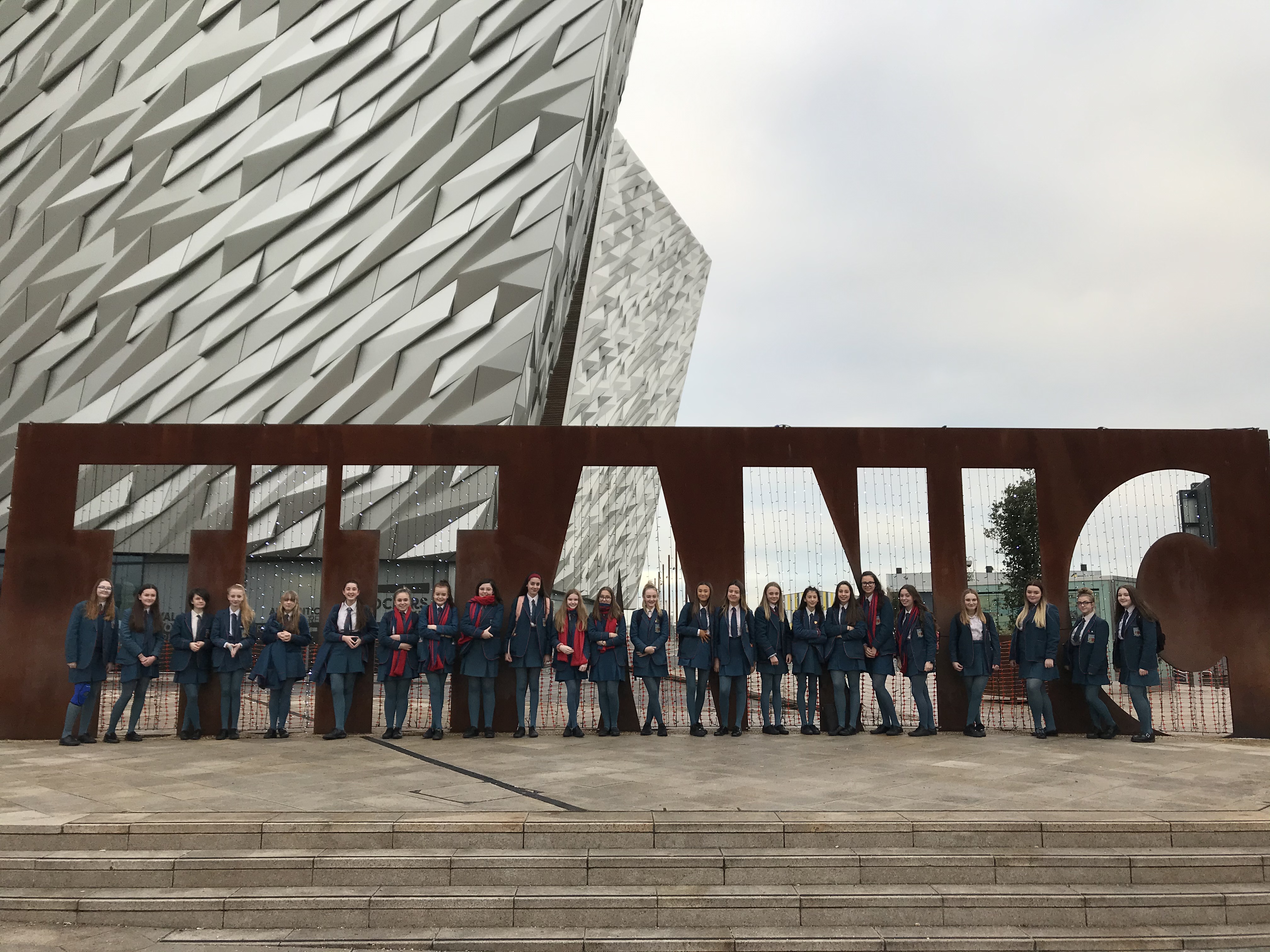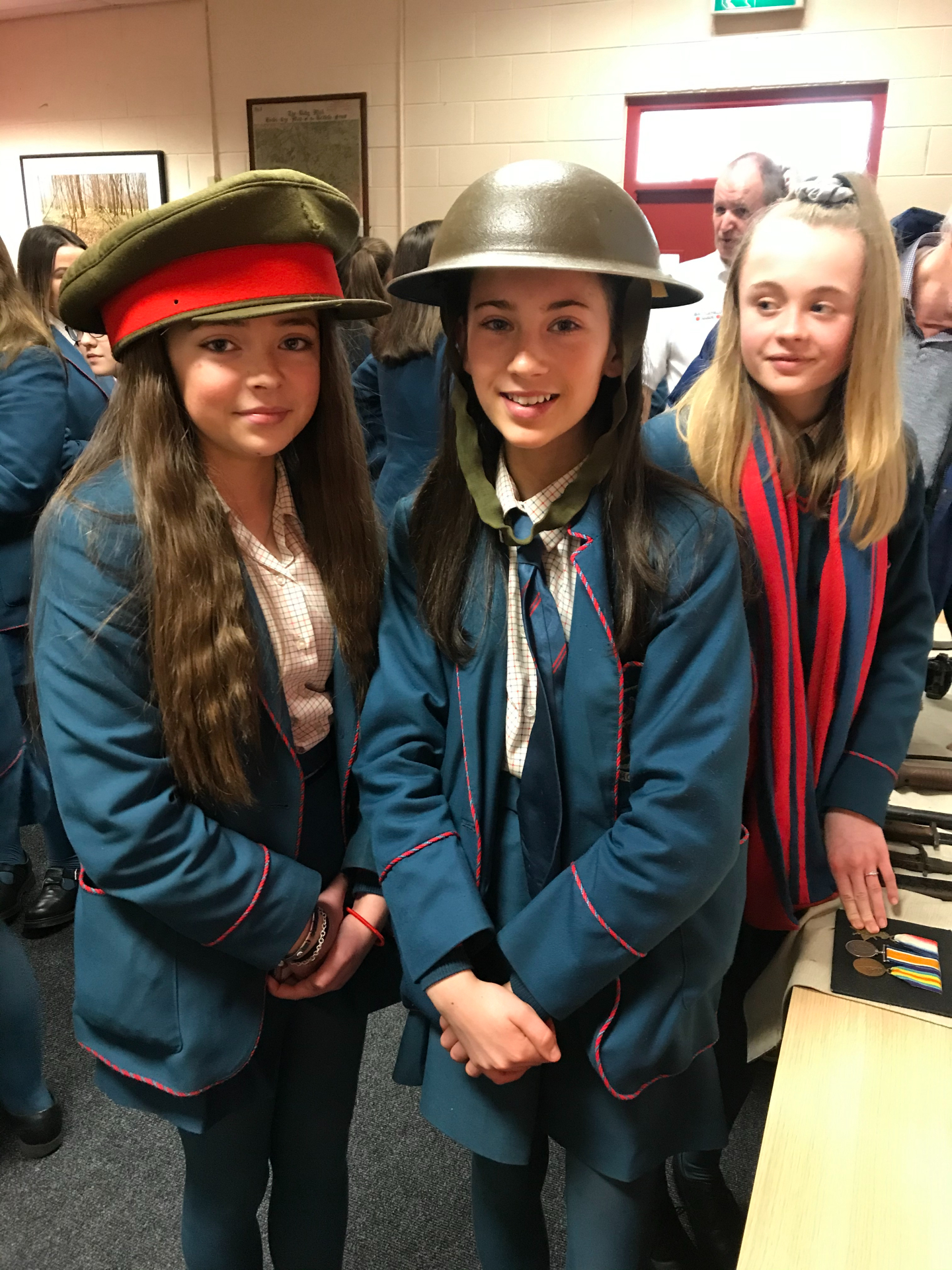History
What Is History?
History involves the study and analysis of the past using evidence. Apart from being extremely enjoyable to explore, by offering students the opportunity to delve into the rich storehouse of human experience, the study of historical change and continuity also enables students to better understand contemporary societies and institutions.
What Do I Study?
At Key Stage 3, a broad range of time periods are studied.
In Year 8, students investigate how historians use evidence, and also explore the history of Hunterhouse College, before investigating how the Normans came to England and Ireland. Topics covered include the Battle of Hastings and Norman Castles.
In Year 9, students study Martin Luther and the Reformation, as well as the Tudor period, with a particular focus on Henry VIII, Elizabeth I and Mary Queen of Scots.
In Year 10, the focus shifts towards the modern period, with topics including the Irish Famine, Industrialisation, Titanic, the First World War and the Suffragettes.
At Key Stage 4, students follow the CCEA GCSE History specification. The following options are studied, leading to two separate examination papers being sat:
- Unit 1 Section A: Life in the United States of America, 1920-1933. This module analyses how the lives of American people were affected by immigration, racial segregation, Prohibition, Flappers and popular entertainment, before considering the impact of the Wall Street Crash and Great Depression.
- Unit 1 Section B: Changing Relations: Northern Ireland and its Neighbours, 1920-1949. This module considers the changing relationships between the north and south of Ireland and Britain following partition. This is set against the backdrops of peace, the Second World War and neutrality.
- Unit 2: International Relations, 1945-2003. This module reviews significant events in the Cold War and the more recent War on Terror. Topics include the Atomic Bomb, the Soviet Control of Eastern Europe, the Korean and Vietnam Wars, the Cuban Missiles Crisis, the Collapse of the Soviet Union, and the Rise of Al-Qaeda.
At Key Stage 5, students follow the CCEA GCE History specification. In Year 13, students study two modules, with a separate examination paper for each:
- AS 1: Germany, 1919-45. This module examines the establishment of the Weimar Republic after the First World War, and the reasons for its decline. The rise of Hitler and the Nazi Party is analysed, along with the consolidation of the Nazi state. The module also explores how the Nazi dictatorship impacted upon the economy, culture and anti-Semitism, before considering developments in Nazi Germany during the Second World War.
- AS 2: Russia, 1914-41. This module analyses the February and October Revolutions of 1917 and the Bolshevik seizure of power. Students assess how the Bolsheviks consolidated their rule following victory in the Russian Civil War, before evaluating Lenin’s economic and socio-cultural policies. Stalin’s rise to power and dictatorship are also covered, outlining the impact of terror, propaganda, industrialisation and collectivisation.
In Year 14, students study a further two modules, with a separate examination paper for each:
- A2 1: Clash of Ideologies in Europe, 1900-2000. This module analyses the relationship between the Soviet Union and Western European Governments from the October Revolution of 1917 to the collapse of the Soviet Union in 1991. Students evaluate how ideological, security, economic and pragmatic motivations patterned foreign policies, probing the tension between aggression and defence in the conduct of foreign affairs.
- A2 2: Partition of Ireland, 1900-1925. This module focuses on key developments in unionism and nationalism, as well as the role of the British governments, in the partitioning of Ireland. The crisis over Home Rule, the impact of the First World War, the Easter Rising, the Anglo-Irish Treaty and the Irish Civil War are all studied, leading up to the establishment of the new government of Northern Ireland.
What Skills Can I Learn?
History places particular emphasis on the development of independent critical thinking skills – evaluation and analysis, as well as the ability to formulate convincing arguments, both orally and in writing. Historians also learn how to evaluate evidence, interpret sources and assess the merits of conflicting interpretations. Such skills prove vital in a range of careers including law, politics, teaching and journalism.
What Opportunities Are Available to Extend My Learning?
A number of events and visits complement the teaching of History in Hunterhouse College. These include Key Stage 3 trips to Carrickfergus Castle, the Titanic Centre and the Somme Centre, as well as an A-Level trip to Dublin. The History and Religious Studies Departments also collaborate on a visit to Krakow.
For further information, please contact Dr. Johnson, Head of History and Politics.
What Is History?
History involves the study and analysis of the past using evidence. Apart from being extremely enjoyable to explore, by offering students the opportunity to delve into the rich storehouse of human experience, the study of historical change and continuity also enables students to better understand contemporary societies and institutions.
What Do I Study?
At Key Stage 3, a broad range of time periods are studied.
In Year 8, students investigate how historians use evidence, and also explore the history of Hunterhouse College, before investigating how the Normans came to England and Ireland. Topics covered include the Battle of Hastings and Norman Castles.
In Year 9, students study Martin Luther and the Reformation, as well as the Tudor period, with a particular focus on Henry VIII, Elizabeth I and Mary Queen of Scots.
In Year 10, the focus shifts towards the modern period, with topics including the Irish Famine, Industrialisation, Titanic, the First World War and the Suffragettes.
At Key Stage 4, students follow the CCEA GCSE History specification. The following options are studied, leading to two separate examination papers being sat:
- Unit 1 Section A: Life in the United States of America, 1920-1933. This module analyses how the lives of American people were affected by immigration, racial segregation, Prohibition, Flappers and popular entertainment, before considering the impact of the Wall Street Crash and Great Depression.
- Unit 1 Section B: Changing Relations: Northern Ireland and its Neighbours, 1920-1949. This module considers the changing relationships between the north and south of Ireland and Britain following partition. This is set against the backdrops of peace, the Second World War and neutrality.
- Unit 2: International Relations, 1945-2003. This module reviews significant events in the Cold War and the more recent War on Terror. Topics include the Atomic Bomb, the Soviet Control of Eastern Europe, the Korean and Vietnam Wars, the Cuban Missiles Crisis, the Collapse of the Soviet Union, and the Rise of Al-Qaeda.
At Key Stage 5, students follow the CCEA GCE History specification. In Year 13, students study two modules, with a separate examination paper for each:
- AS 1: Germany, 1919-45. This module examines the establishment of the Weimar Republic after the First World War, and the reasons for its decline. The rise of Hitler and the Nazi Party is analysed, along with the consolidation of the Nazi state. The module also explores how the Nazi dictatorship impacted upon the economy, culture and anti-Semitism, before considering developments in Nazi Germany during the Second World War.
- AS 2: Russia, 1914-41. This module analyses the February and October Revolutions of 1917 and the Bolshevik seizure of power. Students assess how the Bolsheviks consolidated their rule following victory in the Russian Civil War, before evaluating Lenin’s economic and socio-cultural policies. Stalin’s rise to power and dictatorship are also covered, outlining the impact of terror, propaganda, industrialisation and collectivisation.
In Year 14, students study a further two modules, with a separate examination paper for each:
- A2 1: Clash of Ideologies in Europe, 1900-2000. This module analyses the relationship between the Soviet Union and Western European Governments from the October Revolution of 1917 to the collapse of the Soviet Union in 1991. Students evaluate how ideological, security, economic and pragmatic motivations patterned foreign policies, probing the tension between aggression and defence in the conduct of foreign affairs.
- A2 2: Partition of Ireland, 1900-1925. This module focuses on key developments in unionism and nationalism, as well as the role of the British governments, in the partitioning of Ireland. The crisis over Home Rule, the impact of the First World War, the Easter Rising, the Anglo-Irish Treaty and the Irish Civil War are all studied, leading up to the establishment of the new government of Northern Ireland.
What Skills Can I Learn?
History places particular emphasis on the development of independent critical thinking skills – evaluation and analysis, as well as the ability to formulate convincing arguments, both orally and in writing. Historians also learn how to evaluate evidence, interpret sources and assess the merits of conflicting interpretations. Such skills prove vital in a range of careers including law, politics, teaching and journalism.
What Opportunities Are Available to Extend My Learning?
A number of events and visits complement the teaching of History in Hunterhouse College. These include Key Stage 3 trips to Carrickfergus Castle, the Titanic Centre and the Somme Centre, as well as an A-Level trip to Dublin. The History and Religious Studies Departments also collaborate on a visit to Krakow.
For further information, please contact Dr. Johnson, Head of History and Politics.



